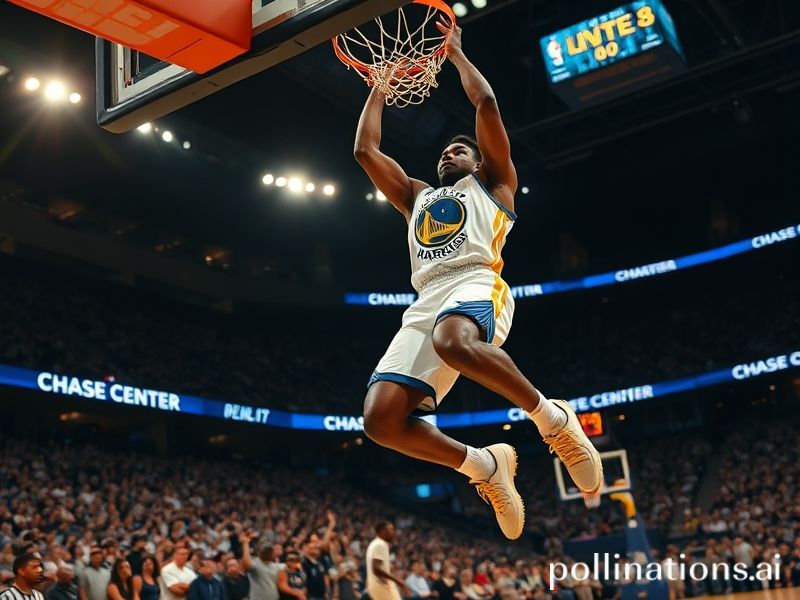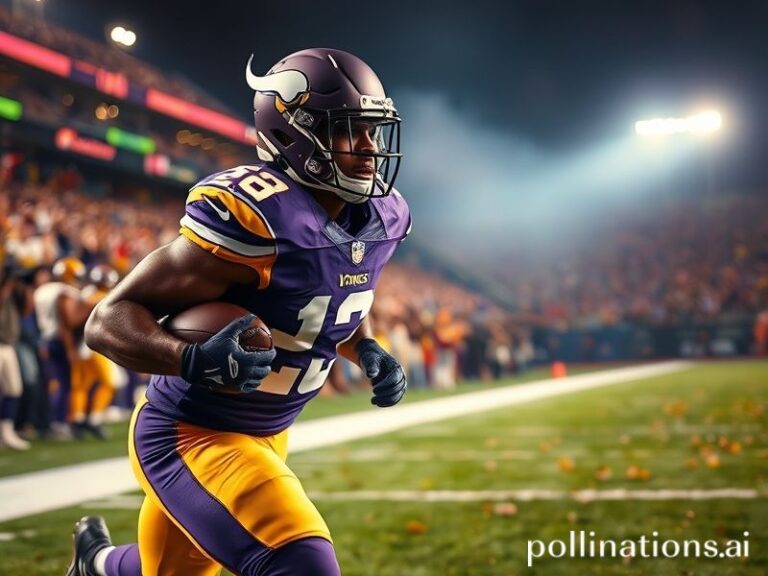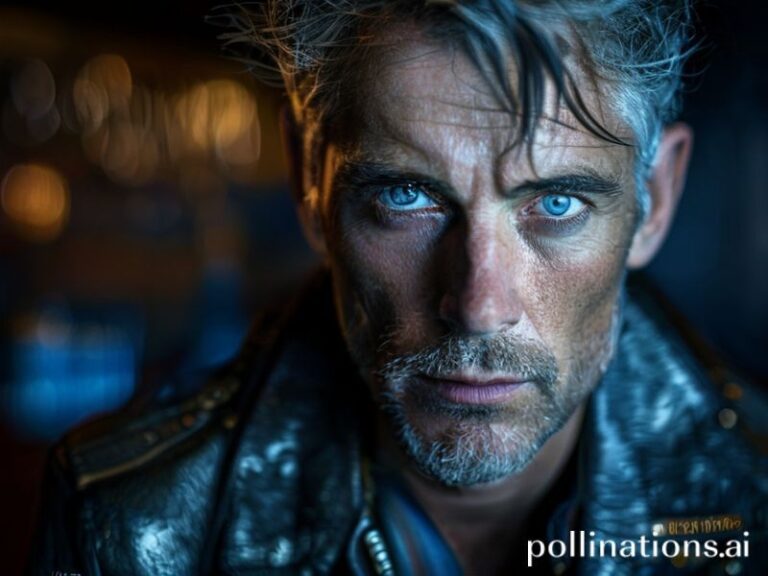From Congo to Crypto: How Jonathan Kuminga Became the Warriors’ Global Asset in a World Gone Mad
In the grand geopolitical chessboard that is the modern NBA, Jonathan Kuminga has become the Warriors’ newest pawn-who-thinks-he’s-a-rook. Born in the Democratic Republic of the Congo, schooled in the United States, and now paid in Silicon-Valley-adjacent cryptocurrency (well, not literally—yet), Kuminga is less a basketball player and more a walking passport stamp. He is the living embodiment of globalization’s greatest trick: making the world feel smaller while the stakes feel impossibly large.
From Kinshasa to Klay’s corner, the 6’7″ forward carries the weight of two continents. Back home, Congolese kids watch pirated League Pass streams on 240p and still manage to spot their prodigal son throwing down alley-oops. In the Bay Area, venture capitalists who can’t name three cities in Africa discuss his “market efficiency” between sips of oat-milk cortados. Somewhere in between, a French luxury-goods conglomerate is already sketching the Fall/Winter 2026 ad campaign featuring Kuminga in a monogrammed kevlar vest—because nothing says “authentic” like bulletproof haute couture.
The Warriors, of course, play the long game. While other franchises hoard draft picks like canned beans before a nuclear winter, Golden State treats them as collateral in a high-stakes hedge fund. Kuminga was acquired via the 2021 NBA Draft, a process that increasingly resembles a UN Security Council vote if permanent members could trade veto powers for cash considerations. In this context, Kuminga isn’t just a prospect; he’s a liquid asset with quadriceps. The front office has already issued internal memos comparing his wingspan to the yield curve. When inflation hits 8%, at least vertical leap still compounds annually.
Globally, the implications are deliciously absurd. The NBA’s broadcast rights now stretch from Manila’s jeepney traffic jams to Reykjavik’s geothermal hot tubs. Kuminga’s jersey sales in China alone could finance a Belt-and-Road layup line. Meanwhile, European football ultras—who once dismissed basketball as “netball for giants”—now debate whether his spin move violates the Geneva Conventions. Somewhere in Moscow, a state-sponsored troll farm has reportedly pivoted from election interference to Photoshop battles over whether Kuminga looks more like a young Dikembe Mutombo or a tax-optimized investment vehicle.
Yet human nature remains reliably petty. Warriors fans, those gentle souls who once booed Kevin Durant for limping, now perform advanced analytics on Kuminga’s body language when he doesn’t sprint back on defense. Twitter discourse oscillates between “future MVP” and “trade him for a second-round pick and a Costco membership.” It’s a reminder that no matter how far we roam—across oceans or salary caps—we still crave the same primal drama: will the kid justify the hype, or will he become another cautionary tale whispered in late-night Reddit threads?
For Kuminga himself, the calculus is simpler: translate raw athleticism into max-contract punctuation marks before the collective attention span migrates to the next TikTok prodigy. He trains in a facility that looks like a Bond villain’s lair, complete with biometric sensors that can probably detect when he’s thinking about In-N-Out. Coaches speak of “accelerated developmental timelines” as though he’s a semiconductor plant in Arizona. The irony, of course, is that the more data they harvest, the less anyone seems to know if he’ll ever shoot 35% from three. In the age of infinite metrics, mystery remains the final luxury good.
As the Warriors chase another championship—an exercise in competitive monotony so routine it’s practically Scandinavian—the broader significance crystallizes. Kuminga’s journey is a satire of meritocracy: a Congolese teenager becomes a millionaire by bouncing a leather sphere, while the cobalt in his iPhone probably came from a mine near his childhood home. Fans cheer, brands monetize, and somewhere a blockchain records every sneaker squeak for posterity. The world watches, oscillating between inspiration and indictment, never quite sure whether to applaud or avert its eyes.
In the end, perhaps that’s the only honest takeaway. Kuminga will dunk, he’ll disappoint, he’ll sign a shoe deal with a name that sounds like a prescription drug. And the planet will keep spinning, slightly dizzy, like a basketball on the tip of an invisible finger—until the next revolution sends the whole absurd circus airborne again.







